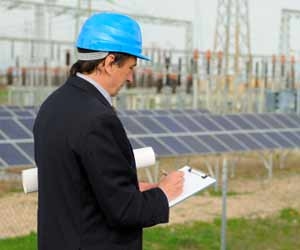A Career in Solar Energy
JobMonkey caught up with Gregory Judd, Chief Financial Officer of the solar power company Glenbarra, to find out about what it’s like to work behind the scenes at a natural energy company.

Even as a CFO, Mr. Judd has to keep up-to-date on all the latest developments in the solar energy field in order to perform his job. Read on to find out more about an average day on the job for a natural energy executive, and to get the details on what it takes to break into the field of natural energy.
Why did you choose to enter the field of alternative energy? What inspired you to choose this career? Was it something you knew you were interested before your education, or did it come about as a result of it?
As a chartered accountant and trustee-in-bankruptcy, I have been exposed to many businesses that have had environmental issues related to their operations or were involved in energy savings technologies. I had taken a continuing education course at U of T [University of Toronto] on environmental issues, and authored a chapter in a management book on environmental issues and accounting.
The opportunity to enter the solar field came from a referral from a neighbor who indicated that Mondial Energy [ed’s note: Mondial was recently bought by Glenbarra Energy; Mr. Judd now works for Glenbarra] was looking for a finance person. I accepted the position of CFO and have now been involved for over 2 years.
What requirements do you believe help you the most as CFO of Glenbarra Energy?
As CFO you need to know a little about a lot of areas of running a business. This would include marketing, sales, corporate finance and basic construction procedures. Being able to quickly understand these topics and summarize the key elements in letters, memos or presentations helps me meet the requirements of being a CFO.
Is it common for you to learn new things on a regular basis? How fast would you say the alternative energy industry is changing?
The alternative energy business is not so much changing as being better understood. I have found that to understand the financial viability of solar projects, I have had to take courses on key products such as inverters, and teach myself using…using industry software. If engineers or project developers are quoting numbers that affect the financial yields you need to
understand the assumptions that were used to create them.
Where do you see yourself and Glenbarra Energy in five years? Ten years?
In five years I see myself as doing more business development work, and working at putting together financing for larger size commercial projects. In ten years hopefully, Glenbarra will recognized as the premier solar installer in Canada.
What do you like about your job?
The position provides new challenges every day and is rewarding in that we are contributing towards solving global warming.
What do you dislike about your job?
The solar industry is new and documentation is required to be created for precedent purposes. This is time consuming. Also, there is not a pool of skilled labour available so must people must be trained which takes time.
What advice do you have for people looking to break into the alternative energy industry? Obviously, they will not be obtaining a position such as yours from the get-go, but what kind of preparation would you recommend?
I have worked with a number of people looking to get into the solar industry. For the most part they need to research the industry and determine how their skill sets can be applied. It is easier then they think. The hardest situation is for people who don’t know what they have to offer and just want a job.


 Teach English in Asia
Teach English in Asia  Cruise Ship Jobs
Cruise Ship Jobs  Alaska Fishing Industry Jobs
Alaska Fishing Industry Jobs  Sharing Economy / Gig Economy
Sharing Economy / Gig Economy